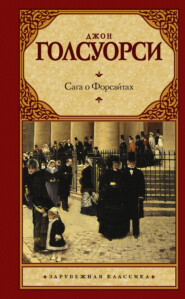По всем вопросам обращайтесь на: info@litportal.ru
(©) 2003-2025.
✖
Saint's Progress
Настройки чтения
Размер шрифта
Высота строк
Поля
“If it is – I shan’t live. I don’t mean to – it’s easy to die. I don’t mean Daddy to know.”
“Oh! my dear, my dear!” was all Leila could stammer.
“Was it wrong, Leila?”
“Wrong? I don’t know – wrong? If it really is so – it was – unfortunate. But surely, surely – you’re mistaken?”
Noel shook her head. “I did it so that we should belong to each other. Nothing could have taken him from me.”
Leila caught at the girl’s words.
“Then, my dear – he hasn’t quite gone from you, you see?”
Noel’s lips formed a “No” which was inaudible. “But Daddy!” she whispered.
Edward’s face came before Leila so vividly that she could hardly see the girl for the tortured shape of it. Then the hedonist in her revolted against that ascetic vision. Her worldly judgment condemned and deplored this calamity, her instinct could not help applauding that hour of life and love, snatched out of the jaws of death. “Need he ever know?” she said.
“I could never lie to Daddy. But it doesn’t matter. Why should one go on living, when life is rotten?”
Outside the sun was shining brightly, though it was late October. Leila got up from her knees. She stood at the window thinking hard.
“My dear,” she said at last, “you mustn’t get morbid. Look at me! I’ve had two husbands, and – and – well, a pretty stormy up and down time of it; and I daresay I’ve got lots of trouble before me. But I’m not going to cave in. Nor must you. The Piersons have plenty of pluck; you mustn’t be a traitor to your blood. That’s the last thing. Your boy would have told you to stick it. These are your ‘trenches,’ and you’re not going to be downed, are you?”
After she had spoken there was a long silence, before Noel said:
“Give me a cigarette, Leila.”
Leila produced the little flat case she carried.
“That’s brave,” she said. “Nothing’s incurable at your age. Only one thing’s incurable – getting old.”
Noel laughed. “That’s curable too, isn’t it?”
“Not without surrender.”
Again there was a silence, while the blue fume from two cigarettes fast-smoked, rose towards the low ceiling. Then Noel got up from the divan, and went over to the piano. She was still in her hospital dress of lilac-coloured linen, and while she stood there touching the keys, playing a chord now, and then, Leila’s heart felt hollow from compassion; she was so happy herself just now, and this child so very wretched!
“Play to me,” she said; “no – don’t; I’ll play to you.” And sitting down, she began to play and sing a little French song, whose first line ran: “Si on est jolie, jolie comme vous.” It was soft, gay, charming. If the girl cried, so much the better. But Noel did not cry. She seemed suddenly to have recovered all her self-possession. She spoke calmly, answered Leila’s questions without emotion, and said she would go home. Leila went out with her, and walked some way in the direction of her home; distressed, but frankly at a loss. At the bottom of Portland Place Noel stopped and said: “I’m quite all right now, Leila; thank you awfully. I shall just go home and lie down. And I shall come to-morrow, the same as usual. Goodbye!” Leila could only grasp the girl’s hand, and say: “My dear, that’s splendid. There’s many a slip – besides, it’s war-time.”
With that saying, enigmatic even to herself, she watched the girl moving slowly away; and turned back herself towards her hospital, with a disturbed and compassionate heart.
2
But Noel did not go east; she walked down Regent Street. She had received a certain measure of comfort, been steadied by her experienced cousin’s vitality, and the new thoughts suggested by those words: “He hasn’t quite gone from you, has he?” “Besides, it’s war-time.” Leila had spoken freely, too, and the physical ignorance in which the girl had been groping these last weeks was now removed. Like most proud natures, she did not naturally think much about the opinion of other people; besides, she knew nothing of the world, its feelings and judgments. Her nightmare was the thought of her father’s horror and grief. She tried to lessen that nightmare by remembering his opposition to her marriage, and the resentment she had felt. He had never realised, never understood, how she and Cyril loved. Now, if she were really going to have a child, it would be Cyril’s – Cyril’s son – Cyril over again. The instinct stronger than reason, refinement, tradition, upbringing, which had pushed her on in such haste to make sure of union – the irrepressible pulse of life faced with annihilation – seemed to revive within her, and make her terrible secret almost precious. She had read about “War babies” in the papers, read with a dull curiosity; but now the atmosphere, as it were, of those writings was illumined for her. These babies were wrong, were a “problem,” and yet, behind all that, she seemed now to know that people were glad of them; they made up, they filled the gaps. Perhaps, when she had one, she would be proud, secretly proud, in spite of everyone, in spite of her father! They had tried to kill Cyril – God and everyone; but they hadn’t been able, he was alive within her! A glow came into her face, walking among the busy shopping crowd, and people turned to look at her; she had that appearance of seeing no one, nothing, which is strange and attractive to those who have a moment to spare from contemplation of their own affairs. Fully two hours she wandered thus, before going in, and only lost that exalted feeling when, in her own little room, she had taken up his photograph, and was sitting on her bed gazing at it. She had a bad breakdown then. Locked in there, she lay on her bed, crying, dreadfully lonely, till she fell asleep exhausted, with the tear-stained photograph clutched in her twitching fingers. She woke with a start. It was dark, and someone was knocking on her door.
“Miss Noel!”
Childish perversity kept her silent. Why couldn’t they leave her alone? They would leave her alone if they knew. Then she heard another kind of knocking, and her father’s voice:
“Nollie! Nollie!”
She scrambled up, and opened. He looked scared, and her heart smote her.
“It’s all right, Daddy; I was asleep.”
“My dear, I’m sorry, but dinner’s ready.”
“I don’t want any dinner; I think I’ll go to bed.”
The frown between his brows deepened.
“You shouldn’t lock your door, Nollie: I was quite frightened. I went round to the hospital to bring you home, and they told me about your fainting. I want you to see a doctor.”
Noel shook her head vigorously. “Oh, no! It’s nothing!”
“Nothing? To faint like that? Come, my child. To please me.” He took her face in his hands. Noel shrank away.
“No, Daddy. I won’t see a doctor. Extravagance in wartime! I won’t. It’s no good trying to make me. I’ll come down if you like; I shall be all right to-morrow.”
With this Pierson had to be content; but, often that evening, she saw him looking at her anxiously. And when she went up, he came out of his study, followed to her room, and insisted on lighting her fire. Kissing her at the door, he said very quietly:
“I wish I could be a mother to you, my child!”
For a moment it flashed through Noel: ‘He knows!’ then, by the puzzled look on his face, she knew that he did not. If only he did know; what a weight it would be off her mind! But she answered quietly too; “Good night, Daddy dear!” kissed him, and shut the door.
She sat down before the little new fire, and spread her hands out to it; all was so cold and wintry in her heart. And the firelight flickered on her face, where shadows lay thick under her eyes, for all the roundness of her cheeks, and on her slim pale hands, and the supple grace of her young body. And out in the night, clouds raced over the moon, which had come full once more.
VI
1
Pierson went back to his study, and wrote to Gratian.
“If you can get leave for a few days, my dear, I want you at home. I am troubled about Nollie. Ever since that disaster happened to her she has been getting paler; and to-day she fainted. She won’t see a doctor, but perhaps you could get her to see George. If you come up, he will surely be able to run up to us for a day or two. If not, you must take her down to him at the sea. I have just seen the news of your second cousin Charlie Pierson’s death; he was killed in one of the last attacks on the Somme; he was nephew of my cousin Leila whom, as you know, Noel sees every day at her hospital. Bertram has the D. S. O. I have been less hard-pressed lately; Lauder has been home on leave and has taken some Services for me. And now the colder weather has come, I am feeling much fresher. Try your best to come. I am seriously concerned for our beloved child.
“Your affectionate father
“EDWARD PIERSON.”
Gratian answered that she could get week-end leave, and would come on Friday. He met her at the station, and they drove thence straight to the hospital, to pick up Noel. Leila came to them in the waiting-room, and Pierson, thinking they would talk more freely about Noel’s health if he left them alone, went into the recreation room, and stood watching a game of bagatelle between two convalescents. When he returned to the little sitting-room they were still standing by the hearth, talking in low voices. Gratian must surely have been stooping over the fire, for her face was red, almost swollen, and her eyes looked as if she had scorched them.
Leila said lightly:
“Well, Edward, aren’t the men delightful? When are we going to another concert together?”
She, too, was flushed and looking almost young.
“Ah! If we could do the things we want to.

















